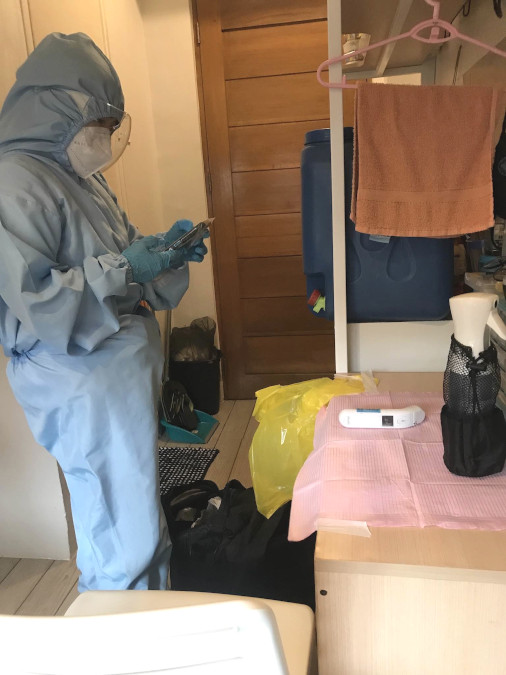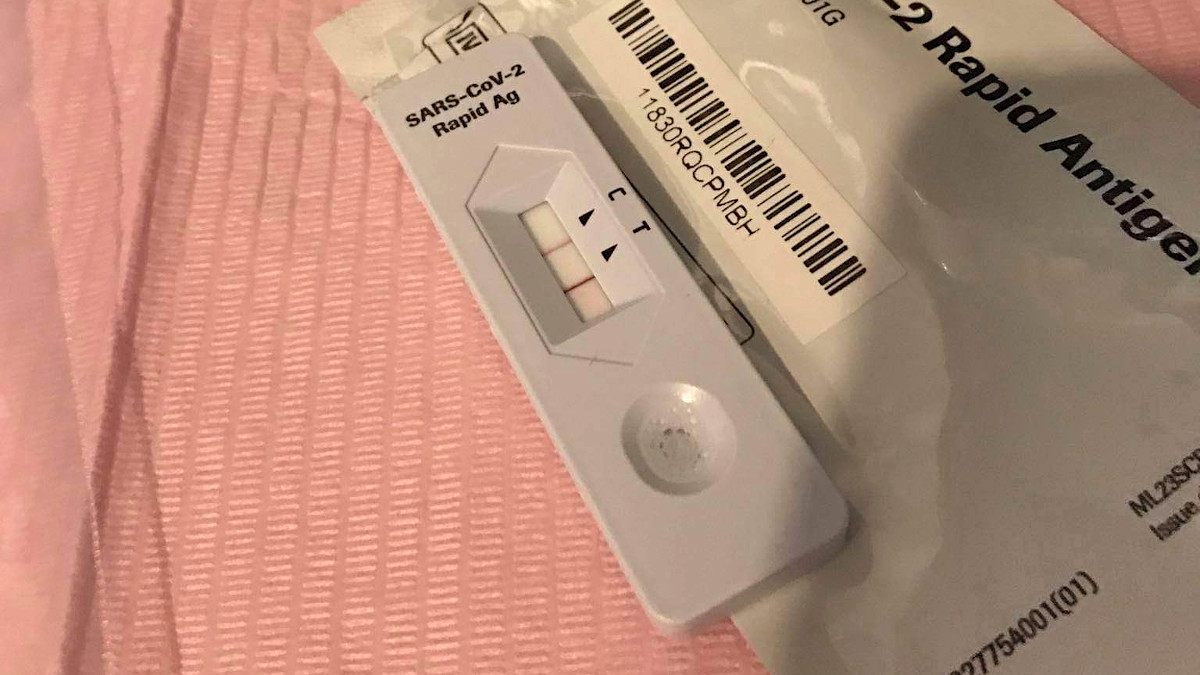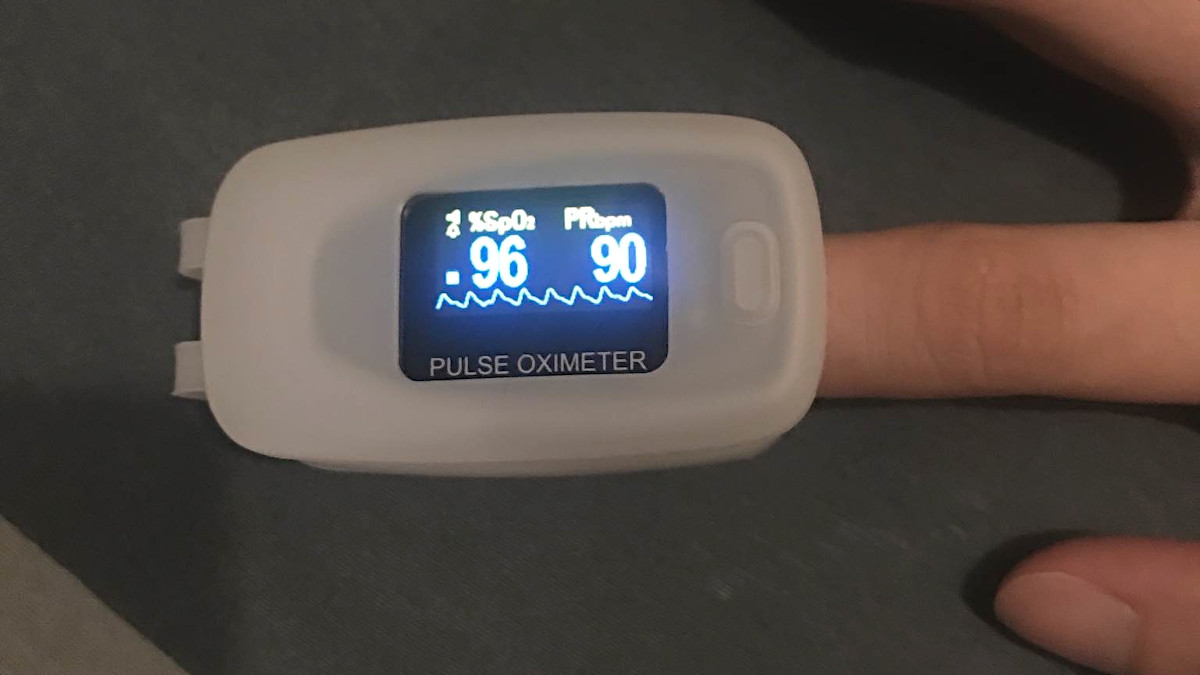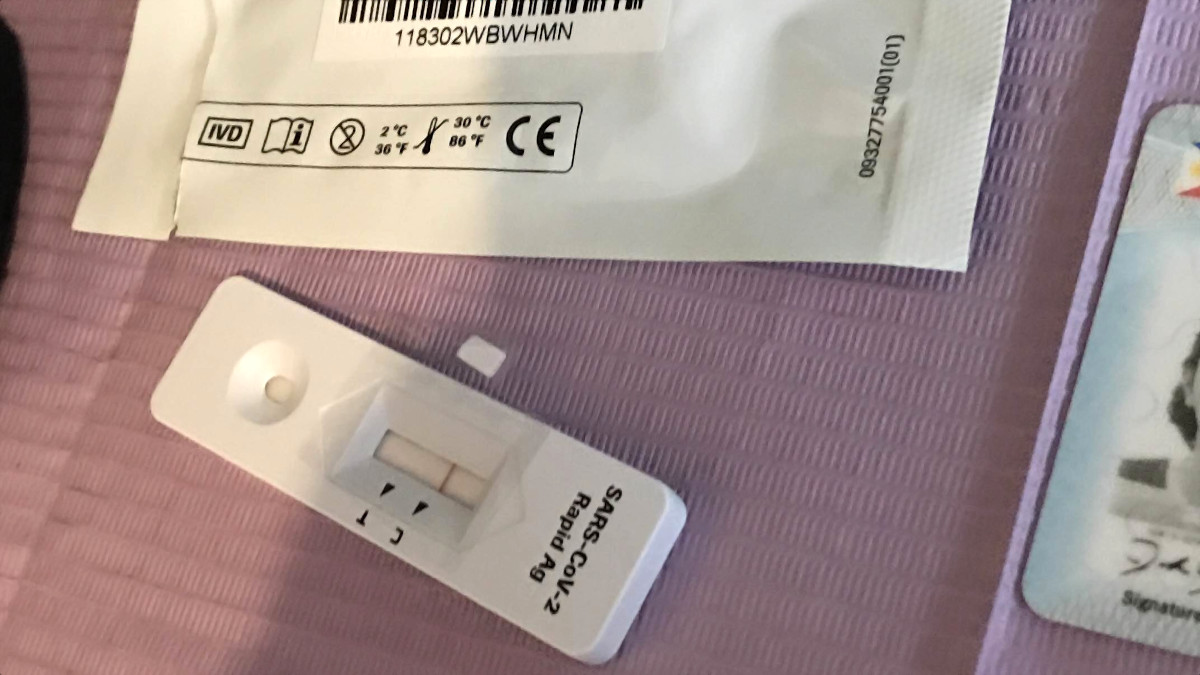The coronavirus disease 2019 (COVID-19) is a contagious disease caused by severe acute respiratory coronavirus 2 (SARS-CoV-2). It ravaged the planet in December 2019 and is still ongoing at the time of writing.
The WHO released guidelines to slow down the spread of the virus such as:
- Staying at home
- Wearing a mask
- Keeping distance from others
- Washing hands with soap and water
- Frequently disinfecting hands and objects with alcohol
- Avoid touching the eyes, nose, and mouth with unwashed hands
- Getting vaccinated
We follow these protocols vigorously and stay at home as much as possible. However, the virus got past our defenses and infected us in October 2021.
How we got it
My girlfriend went home to her hometown on October 2 to attend her sister's wedding ceremony. During that period, I stayed in our apartment in Makati.
The government restrictions that time allow public gatherings such as weddings to be held with guests no more than 30% of the venue's seating capacity while strictly observing the preventive measures.
I advised that she stay home for at least 7 days before going back to the apartment, but her home is not good for telework. She went back to our apartment on October 4.
To avoid the risks of public transportation, she rented a cab using the ride-hailing service Grab on her travels.
A few days after she went back, we isolated in our apartment unit and never went out. We requested my sister, who's living in a different unit, to pick up our food deliveries and run errands on our behalf.
What happened
Around October 8, we started to sneeze and have runny nose. We assumed it was just the cold because we catch it now and then, although we never leave our apartment.
On October 10, my girlfriend lost her sense of smell and taste, a common symptom of COVID-19. At the same time, we are experiencing dry coughs.
On October 12, I had a fever, which lasted for a day. The IR thermometer we've bought in the early periods of the pandemic broke just after a few months, so we didn't have an instrument to measure our temperatures. My pulse was also fast, even at rest. My girlfriend didn't have a fever.
Our symptoms show that we have COVID, so we reported our situation to the property management the next day. They advised that we get tested using Zennya, a telemedical service. We booked rapid antigen tests on the same day, around 16:00.


A registered nurse went to our unit in full PPE and performed the nasal swab. The tests used Roche antigen test kits. We were able to see the results within a few minutes. As expected, we were positive of the virus.
We submitted a copy of the results to the management. They allowed us to stay in the building. However, we were forbidden to go out of our unit at any time for the next 14 days.
On October 14, I also lost my sense of smell and taste.
We confirmed the condition of my girlfriend's relatives, who also attended the event. Because they didn't show any symptoms, we can't exactly tell where she got the virus.
Care and recovery
The building staff would deliver our drinking water outside our unit and put away our garbage bags. My sister would bring our food deliveries to our doorstep.
Zennya offered a complimentary consultation, which we gladly took. The consultation was conducted via video call using their app. The doctor prescribed that I take Paracetamol, Vitamin C + Zinc, Azithromycin, Dynatussin, Ketesse, and Vitamin D. (warning: don't use these drugs without prescription!)
Although not proven helpful against the virus, we took Scott's Vitamin C pastilles and drank fruit juice daily to give our immune system an extra boost.
We also got a new thermometer and pulse oximeter to monitor our oxygen saturation level and temperature.

I lost my appetite for fast foods so we ate lots of meals with soup such as sinigang and nilaga. Cooking with a stove is not allowed in our apartment, so we usually order meals from Grab.
Luckily, our symptoms remained mild during the our infection. Our oxygen levels never went below 95, and our breathing was fine, so we didn't need oxygen support.
Our condition has gradually improved a week after the onset of symptoms. We regained our sense of smell and taste around the second week.

We booked another antigen test on the 14th day (October 27) as advised by the property management. Finally, we tested negative and were officially fully recovered from the virus.
Get vaccinated
Getting the virus is scary and depressing because you can't tell how hard it will hit you. I've personally known some people who got moderate to severe symptoms; others didn't survive.
The best prevention is to get vaccinated once you're eligible. Vaccination doesn't guarantee you won't get the virus, but it will lower your chance of developing severe illness. No, vaccines don't alter your DNA; stop believing bullshit.
Vaccines prepare your adaptive immune system against the virus so it can react faster before the virus can cause significant damage to your body. The CDC has an article explaining this phenomenon in detail.
I got my first dose of AstraZeneca vaccine on August 23. The effects of the vaccine on each people differ. About 12 hours after the vaccination, my sister and I got a fever that lasted for a day. My girlfriend didn't develop any fever at all.
Depending on where you live, your government may prioritize certain groups of people due to limited vaccine supplies. Register and get vaccinated as soon it's your turn. While you're not yet fully vaccinated, strictly follow all protocols, be vigilant, stay healthy, and avoid unnecessary travel.
My schedule for the second dose is on November 15. The long wait between doses is said to provide the optimal protection against the virus.